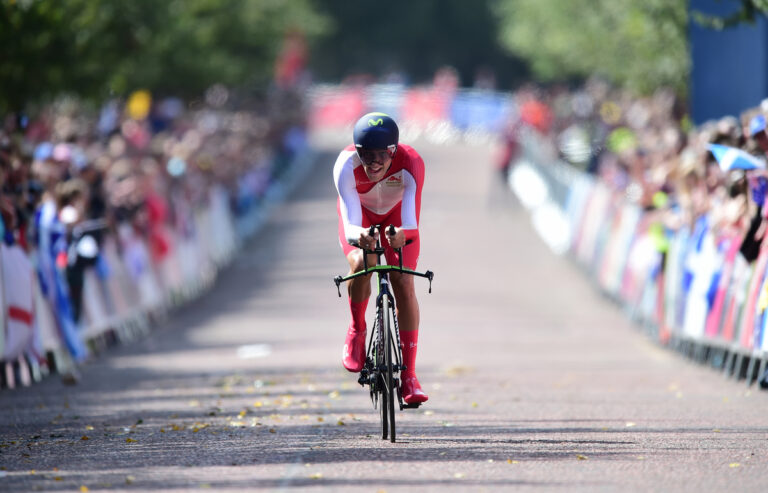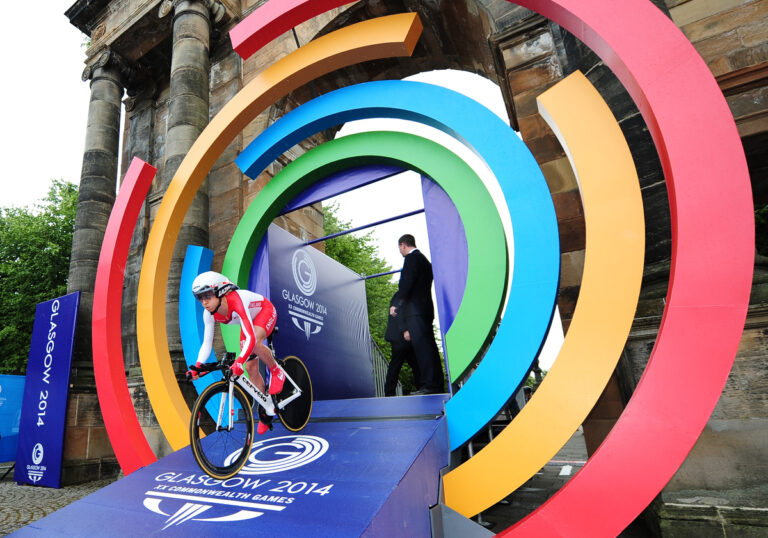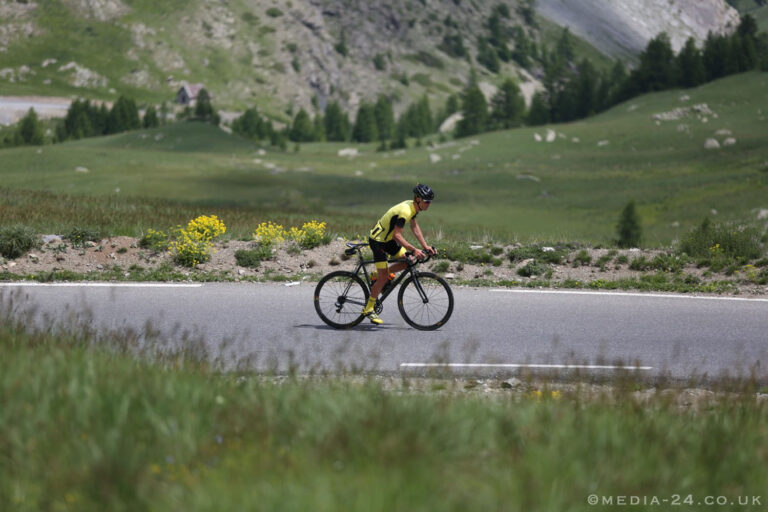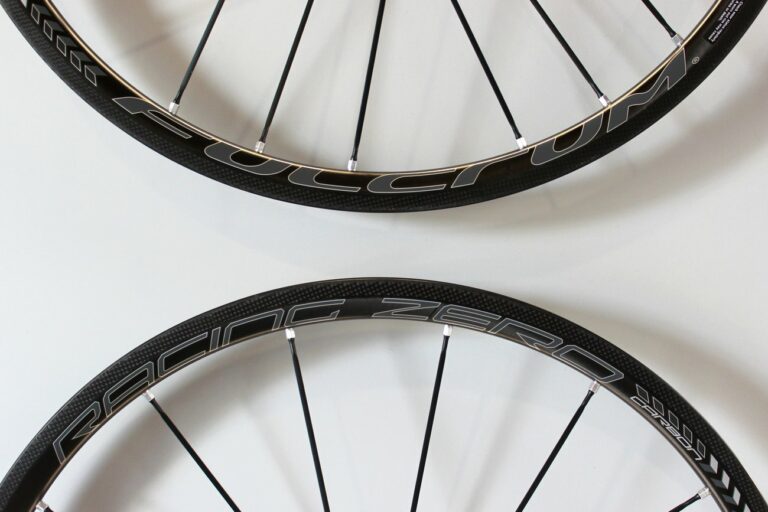They came in their thousands to Leeds and to Harrogate, and the roads between were lined with even greater numbers. The sun shone, and as the peloton drew closer to the denouement, the collective temperature soared.
The home favourite crashed almost within sight of the finish line, but his courageous effort in climbing back on to finish meant no one went home disappointed. The Grand Départ of the 2014 Tour de France is already an unqualified success, and another landmark in British cycle sport.
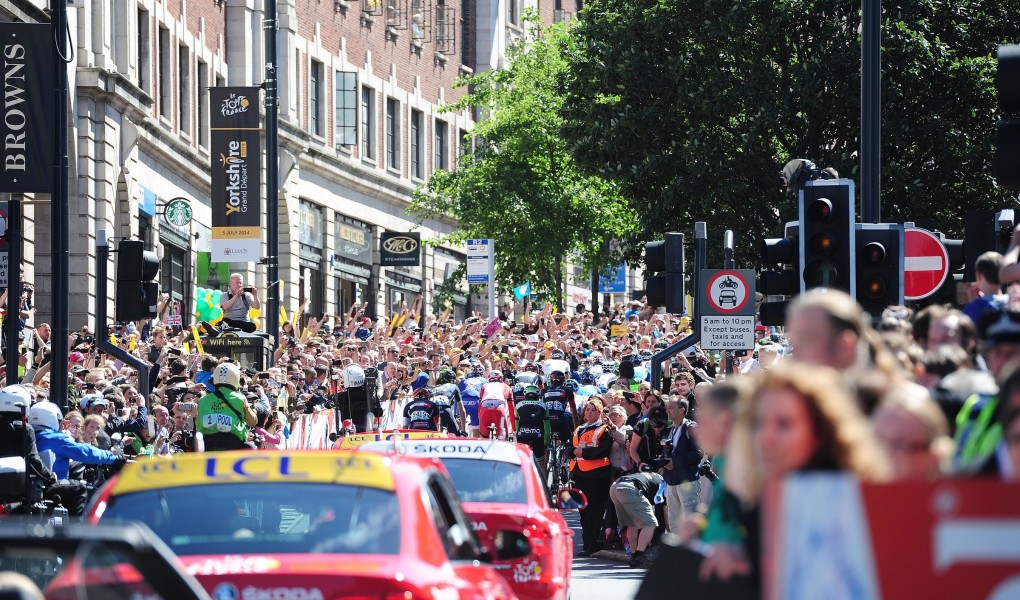
So is Dave Brailsford right when he says Britain has become a cycling nation? An apt question for RoadCyclingUK to consider, perhaps. We witnessed first hand the welcome extended to the Giro by Belfast (although a bike race can hardly be expected to heal generations of disharmony). Dublin, too, embraced the Grande Partenza. So what might Yorkshire’s response tell us about the wider popularity in mainland Britain of the sport we love?
The British remain a self-effacing bunch: distrustful, for example, of the manufactured positivity of the World Cup’s corporate backers, and uncomfortable with sporting success, unless underscored by triumph in the face of adversity, or ultimate reward for a lifetime of effort (see Wiggins, Farah, Murray).
The evidence presented in Yorkshire, however, is that we are proud of our cyclists when they win, and we support them in tougher times. The roar that greeted images of a Quickstep-led peloton on the giant screens in Harrogate was matched only by the sustained applause for its fallen leader as he bravely climbed back on his bike to cross the finish line.
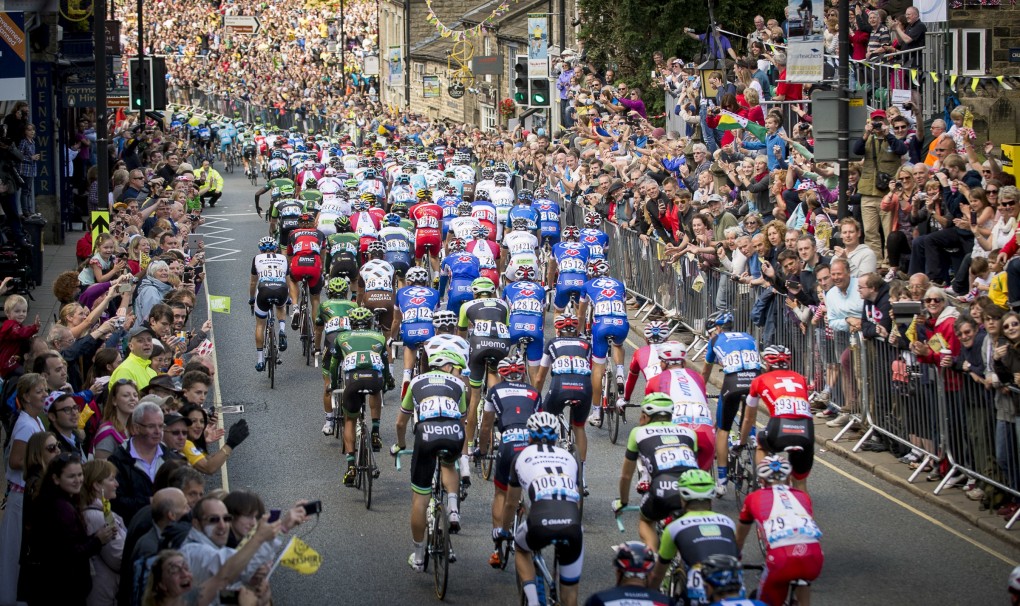
Professional cycling is not yet entirely understood on these shores, if today can be taken as a guide. If Mark Cavendish abandoned, would Chris Froome still ride to Paris, the woman next to me asked; her husband seemed uncertain. His disappointment at the Manx Missile’s crash had been tempered by victory for Kittel: like him, a man who rides to work on a Giant. For the beery but sociable group behind, Cavendish proved unexpectedly difficult to include in a football chant (the matching cadence of Here We Go inexplicably overlooked), and the tactics still harder to fathom. But while the strategic niceties of a sprint finish may forever remain as incomprehensible to the casual observer as the offside rule, the response to the bravery, endeavour, and raw speed displayed was instinctive.
That cycling has no real mechanism to charge the roadside spectator for the show is at once its Achilles heel and saving grace. The dependence on sponsorship it forces upon teams creates a fundamental instability, but the scale of support afforded to an event held on public roads places it a level above any other sport. The cutaway to the fan park has become a staple of the stadium broadcast – the ticketless thousands undeterred by their exclusion from the arena – but Henman Hill, and even Copacabana Beach seem small beer compared to the takeover of entire towns and today’s climbs.
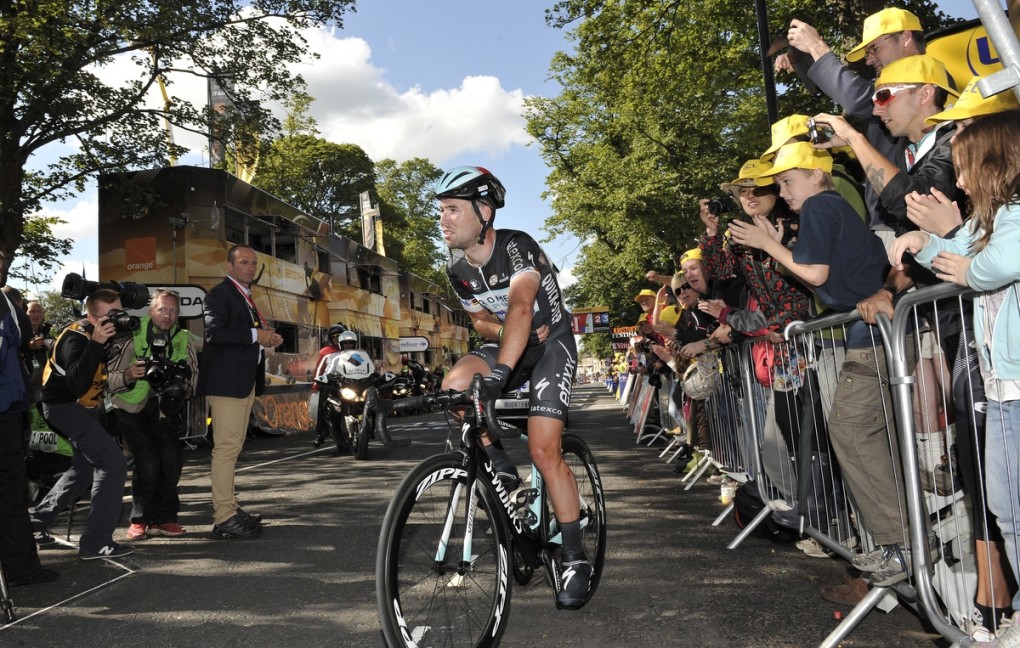
The Tour is the Tour, experienced observers say, different to anything else in cycling, and perhaps even in sport, but today’s scenes in Yorkshire were not entirely unprecedented. The Tour of Britain, barely comparable in terms of sporting significance, draws the punters in their hundreds of thousands, and more each year; the RideLondon-Surrey Classic in its inaugural edition had them standing ten deep outside Harrods and lining The Mall from end to end. There is mounting evidence to support a simple truth: the British love a bike race.
They love a day out too, of course, and the prospect of a home victory adds to the allure, but a pattern has definitely emerged: high-profile British rider plus international field equals huge crowds at the roadside. The greater the live support, the better the television pictures; the better the pictures, the greater the coverage; the greater the coverage, the bigger the interest from the commercial sector – a virtuous circle.
Cavendish continues to seek good fortune on his own roads, but he will be no less popular for his failed attempt at victory today. It is likely that the transformation of Chris Froome from ‘the Kenyan-born Brit’ to ‘Froomey’ will continue too, if only because it is easier to chant. And while the sun shines on Yorkshire, it will continue to shine on the Tour. Tomorrow’s parcours promises a second helping of high drama: expect the crowds on Holme Moss to be greater even than those witnessed today. And given the reception so far, expect the Brits to embrace the Tour again.
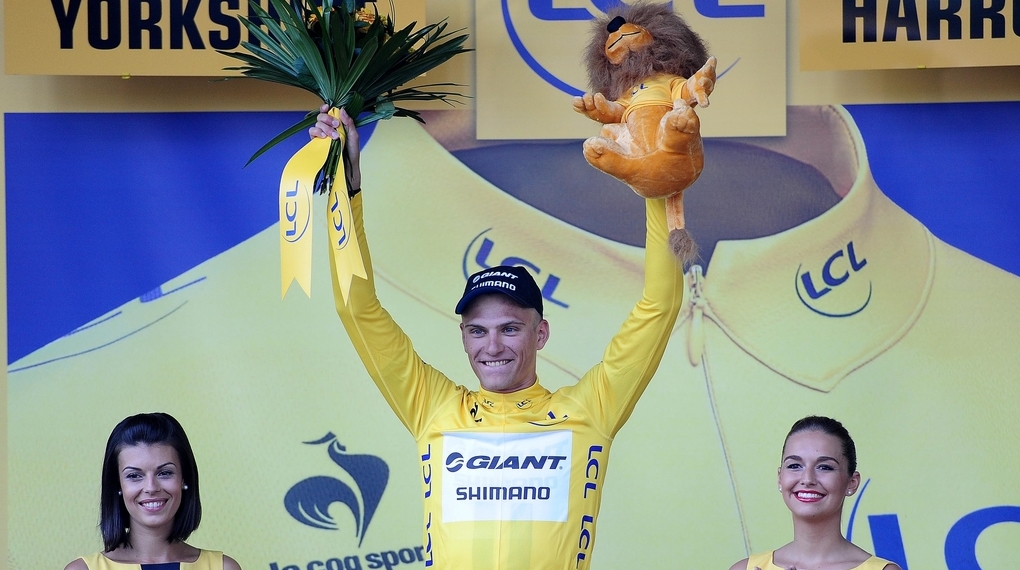
This embrace is mercifully free of jingoism; the support shown today extended to all. Marcel Kittel was widely considered a worthy winner, his nationality an irrelevance. Compare and contrast with football. The patriotism, if that is even the word, is of the best kind: the greatest hopes reserved for the home favourite, of course, but nothing spared in admiration for the winner, wherever he may come from.
Are the British a cycling nation? We are not yet Belgian, but we are unrecognisable from the baffled populous that found cycling’s greatest race briefly in its midst in 1974, and have a deeper collective interest than that piqued by Chris Boardman 20 years later. Today we showed that we are willing and able to deliver an even greater success than the unexpected triumph of 2007 (the Tour might be how Britain ‘does’ major sporting events, post-London 2012; the Commonwealth Games will tell). Offer Christian Prudhomme an annual British stage right now, and he’ll snatch your hand off.


